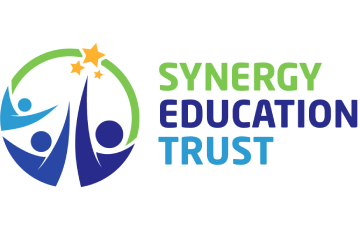British Values 2024 - 2025
“British Values promote democracy, the rule of law, individual liberty and mutual respect and tolerance of those with different faiths and beliefs.” – Department for Education
At Boundary, our behaviours at playtime and at lunchtime should reflect these core values. As a school, we take part in activities throughout the year which aim to develop our knowledge and understanding of these values, helping us to become better citizens.
For a detailed understanding of the Intent, Implementation and Impact of the teaching of British Values and how it is woven into learning and interactions between staff, pupils, parents and carers at Boundary, please click the boxes below.
Value |
How we Promote it |
DemocracyLinks to school characteristics.
|
We have a School Council where each member is elected by the pupils. This is used as an opportunity to promote and teach respect about democracy and the electoral process. Democracy is also promoted through additional PSHE and SMSC lessons, circle times and assemblies. |
The Rule of LawLinks to school characteristics:
|
We teach pupils to appreciate that living under the rule of law in Britain protects individual citizens and is essential for their wellbeing and safety. We have high expectations about pupil conduct and this is reflected in our Behaviour Policy, Always Badges and Boundary Promises. There are rules for exhibiting responsible actions and respectful behaviour, demonstration of our values is recognised through such things as weekly achievement awards (Star of the Week, Reading Champion and Handwriter of the Week) and house team trophies. Through our school assemblies, and events such as Sports Day, children are taught how to earn trust and respect and are supported to develop a strong sense of morality; knowing right from wrong and doing the right thing and making good choices even when it's difficult. |
Individual LibertyLinks to school characteristics:
|
Through our school characteristics, assemblies, the PSHE, SMSC and RSE programmes and special events, such as Black History Week, children are taught about personal responsibility, choices, ambition and aspiration. They are encouraged to take opportunities to follow their interests in art, music, sport and a range of extra-curricular clubs that support these choices and interests are available. Children are taught how to keep themselves safe, including online. This is done through computing lessons and outside organisations, as well as through the PSHE and RSE curriculum. |
Mutual RespectAndTolerance of different faiths and beliefsLinks to school characteristics:
|
Children are taught to understand the importance of identifying and combatting discrimination. We have high expectations about pupil conduct and this is reflected in our Behaviour policy, Always badges and the Boundary Promises. Children are taught to respect each other, to be co-operative and collaborative and to look for similarities while being understanding of differences. Children nominate each other for the ‘Character Nominations’ each week. Mutual respect is also promoted through additional PSHE lessons and special days, such as Anti- Bullying Day and Rainbow Laces. EAL support/provision is appropriate, caring and respectful; for adults and children. We teach children that the freedom to choose and hold other faiths and beliefs is protected in law. We have high expectations about pupil conduct and this is reflected in our Behaviour Policy and Boundary Promises. Tolerance of different faiths and beliefs is promoted through the Locally Agreed Syllabus for Religious Education. Children learn about different religions, their beliefs, places of worship and festivals. The childrens' work on this subject is displayed in the classrooms or around the school. This is supplemented by celebrations of significant religious festivals such as Diwali. Visits are made by local religious groups and people such as the local vicar, and they also have the opportunity to visit places of worship. |







